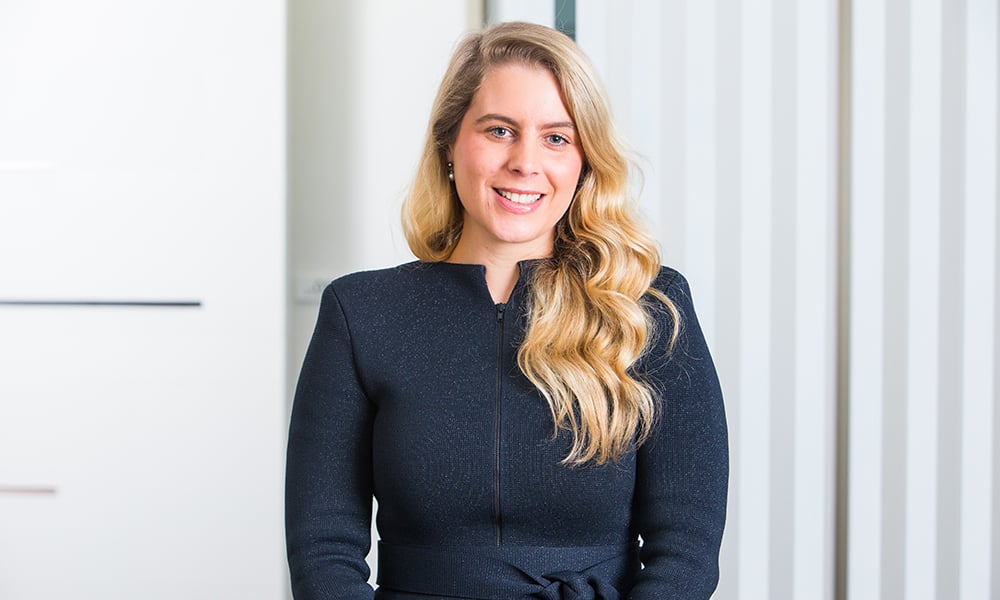
“Being forced to think differently about the way we work has been a great side effect of COVID-19,” Hayley Mitchell says

2020 is a big year for Cooper Grace Ward’s Hayley Mitchell. Not only is it the 10-year anniversary of the estates expert’s admission to the profession, it is the year she made partner as part of the firm’s women-dominated promotions cycle last month.
While 2020 has had its share of challenges due to the COVID-19 pandemic, Mitchell looks forward to how the industry can learn from the pandemic, especially with respect to how lawyers think about the way they work. As many have transitioned effectively to a remote work setup, she is eager to see if such flexible arrangements can be sustained in the long term.
In this interview, Mitchell talks about the recent spotlight on workplace sexual harassment, equal representation for women at the top end of the legal profession and the “improvement and threat” of automation and AI in estate planning.
What made you choose a career in law?
It wasn’t until I completed the legal practical training course and was admitted as a solicitor that I chose a career as a lawyer. I had decided to study law at university because I had a general interest, but at that stage, I wasn’t certain I wanted to be a lawyer.
What do you love most about your job?
As I am sure most lawyers will agree, that’s a tough question some days! Most days it’s the collegial spirit of the firm I work in and the greater Queensland legal community, and feeling accomplished when providing solutions for my clients.
What is going on at the firm? Are there any new programs and initiatives that you’re particularly interested in?
As the COVID-19 restrictions ease, the team has gradually returned to the office. However, as we have proved we can work from home, I’m looking forward to seeing whether our more flexible working from home arrangements can continue in the long term. Being forced to think differently about the way we work has been a great side effect of COVID-19.
What has been your proudest accomplishment in the last year or so?
The year 2020 will mark 10 years since my admission, and it now also marks the year I became a partner at my firm. It’s been a great milestone to use as a point of reflection on my time as a law student, young lawyer and progression through to a senior member of the team. It’s certainly not something I would have predicted or said was possible within the timeframe at the start of my legal career.
What should the profession and law firms focus more on?
There are a couple of issues. The first is looking at improving efficiencies out of the COVID-19 lessons. There is potential to improve cost benefits to our clients, while also improving the mental health of our lawyers, staff and colleagues. The second issue has been highlighted by the High Court’s recent inquiry, and that is the risk of sexual harassment in the workplace and the unequal representation of women in senior positions in the law.
What are the challenges you expect in your practice, and in the business of law in general, going forward?
One of the biggest challenges in my practice area, particularly estate planning, is the continual improvement and threat of automated document production and AI. However, given the very personal nature of estate planning and the subjective issues that arise, we see clients having a continuing need for trusted advisers who understand their broader goals.
What are you looking forward to the most in the coming year?
Holidays.